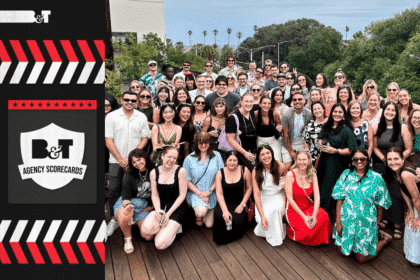Despite rising interest rates and building costs, new research from Allianz Australia has today revealed that 3.5 million Australian homeowners are looking to renovate or make improvements to their homes in the next six months.
Yet, a quarter of those with a renovation plan who were surveyed aren’t considering making their home more sustainable (24 per cent). Almost half of those surveyed don’t know where to start when it comes to sustainable renovations (46 per cent), and almost nine in ten say there are barriers deterring them from making their home sustainable (86 per cent).
Australian homeowners who were surveyed list the key barriers to sustainable improvements as associated high costs (60 per cent) and complexity (31 per cent). Furthermore, many say that making their home more sustainable feels like a very large task (51 per cent) and are unsure of the benefits of sustainable improvements (27 per cent).
Despite this, the research shows there is an appetite for change, with surveyed Australian homeowners admitting they would consider making their home more sustainable if it increased the value of their home (46 per cent) if they understood what the benefits are for them or their family (37 per cent), or the environment (34 per cent) or if they received more information on how they can make changes in their own home (34 per cent).
To help bridge the knowledge gap of Australian homeowners, Allianz Australia and the Green Building Council of Australia (GBCA) have developed Green Specs, a digital destination aiming to help Australians make their blueprints green and break down the technical information available in their newly released Guide.
The Guide, developed by GBCA, is a technical manual and checklist for sustainable improvements aimed at industry professionals, while Green Specs is a visual representation of the Guide, simplified into an interactive plan via a website.
On Green Specs, Australians will be able to explore the rooms of a digital floorplan and learn new ways to make their home more sustainable – from small improvements to undertaking major renovations. Changes can be filtered by room and budget, – everything from:
- Positive changes (such as energy efficiency)
- Healthy changes (such as reducing harmful chemicals or emissions)
- Resilient changes (such as reducing the risk of extreme weather impacts on your home).
Green Specs comes as almost half of surveyed Australian homeowners say there isn’t enough information available on how to make their home more sustainable (49 per cent), and almost two-thirds (63 per cent) want to learn more about how they can make their home more sustainable.
“It’s easy to think of sustainable renovations as complex and expensive, however this doesn’t have to be the case. By thinking holistically and choosing more sustainable products and materials, homeowners can not only support the planet, but be more resilient to a changing climate and manage their overall household energy use, benefiting from cheaper bills, and healthier and less environmental impact products,” said architect and leader in sustainable homes, Alexander Symes.
“Having a tool that simplifies sustainable improvements available for Australian homes, from solar to insulation and even lightbulbs, Australian homeowners can be empowered to make greener decisions”.
“The increasing frequency and severity of weather events makes it more important than ever to consider sustainable and resilient elements in our homes. The insurance industry has an important role to play in supporting our customers and the community to transition to net zero. In bringing Green Specs to life, our aim is to highlight ways to make homes more sustainable – from small improvements through to large renovations,” said Sema Whittle, general manager of corporate governance and sustainability at Allianz Australia.
Allianz claims data has revealed that 43 per cent of home insurance claims made between May 2022 and April 2023 were a result of an extreme weather event. However, the research from Allianz Australia shows that when it comes to a sustainable home and its resilience to weather events and natural disasters, only half of surveyed Australian homeowners believe flood (55 per cent) and bushfire (51 per cent) resilience are features of a sustainable home.
Furthermore, a quarter of surveyed Australian homeowners with a renovation plan are not planning on making their homes more resilient against extreme weather events (26 per cent).
“Our research has shown that three in five homeowners are looking to their home and contents insurer to inform them of how to make their homes more sustainable and more resilient to climate change. Green Specs aims to bridge a knowledge gap for Australian homeowners by providing a wealth of information about everything from using sustainable building materials, choosing greener appliances, improving a home’s resilience to bushfire or flood, and more. We’re proud to partner with GBCA to bring Green Specs to life,” Whittle said.
With 53 per cent of Australia’s total built greenhouse gas emissions coming from our homes, the partnership between Allianz and GBCA is designed to encourage Australians to play a role in changing how we use resources at home to help contribute to a more sustainable future.
“What’s really interesting is that changes that are good for the planet, can also be good for your health and your back pocket. By making simple updates to your home, such as replacing gas appliances, installing solar panels, or implementing energy-saving measures like sealing gaps around doors and adding insulation, you not only create a healthier living space but also reduce emissions and save on energy bills,” said Davina Rooney, CEO of GBCA.








